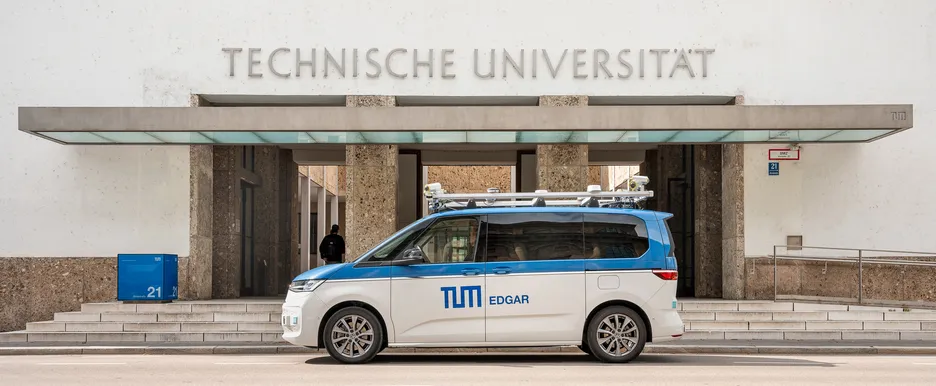
Problem statement
The individual modules for autonomous driving are already at an advanced level. Nevertheless, they are tested and evaluated in isolation, while the integration and simulation of the entire system is necessary. In addition, the datasets mostly represent ideal environments that correspond to only a small part of real-world traffic scenarios. In order to deploy fully automated vehicles, complex and unstructured environments need to be addressed. Two steps address this issue: First, new datasets that can represent the multiplicity of traffic scenarios must be collected. Second, algorithms that deal with such environments must be designed, integrated and tested.
Objective
The goal of the project is the development, integration and evaluation of novel algorithms for use in highly interactive situations in a level 4/5 vehicle. The first sub-goal is the creation of a multimodal data set that represents the unstructured traffic scenarios. In the area of Perception, 3 sub-goals are to be achieved: Object recognition in the near and far field considering uncertainties; data-based prediction of vehicles in the environment of the ego-vehicle; interactive and safe trajectory planning considering the reactions of other road users. In parallel, the data- and function-specific design and integration of the software architecture will be performed. In the end, the algorithms will be evaluated in real vehicles, by which the robustness, real-time capability and performance of the algorithms will be proven.
Approach
- Analysis, evaluation and specific further development of existing methods for use in the targeted modules of the software stack
- Creation of a data set consisting of both simulation data and real data
- Integration of the developed algorithms into the existing overall software
- Simulative evaluation of the overall software
- Evaluation in a real vehicle by means of a demonstration drive in an urban environment
Team

| Dominik Kulmer, M.Sc. |
|

| Esteban Rivera, M.Sc. |
|


